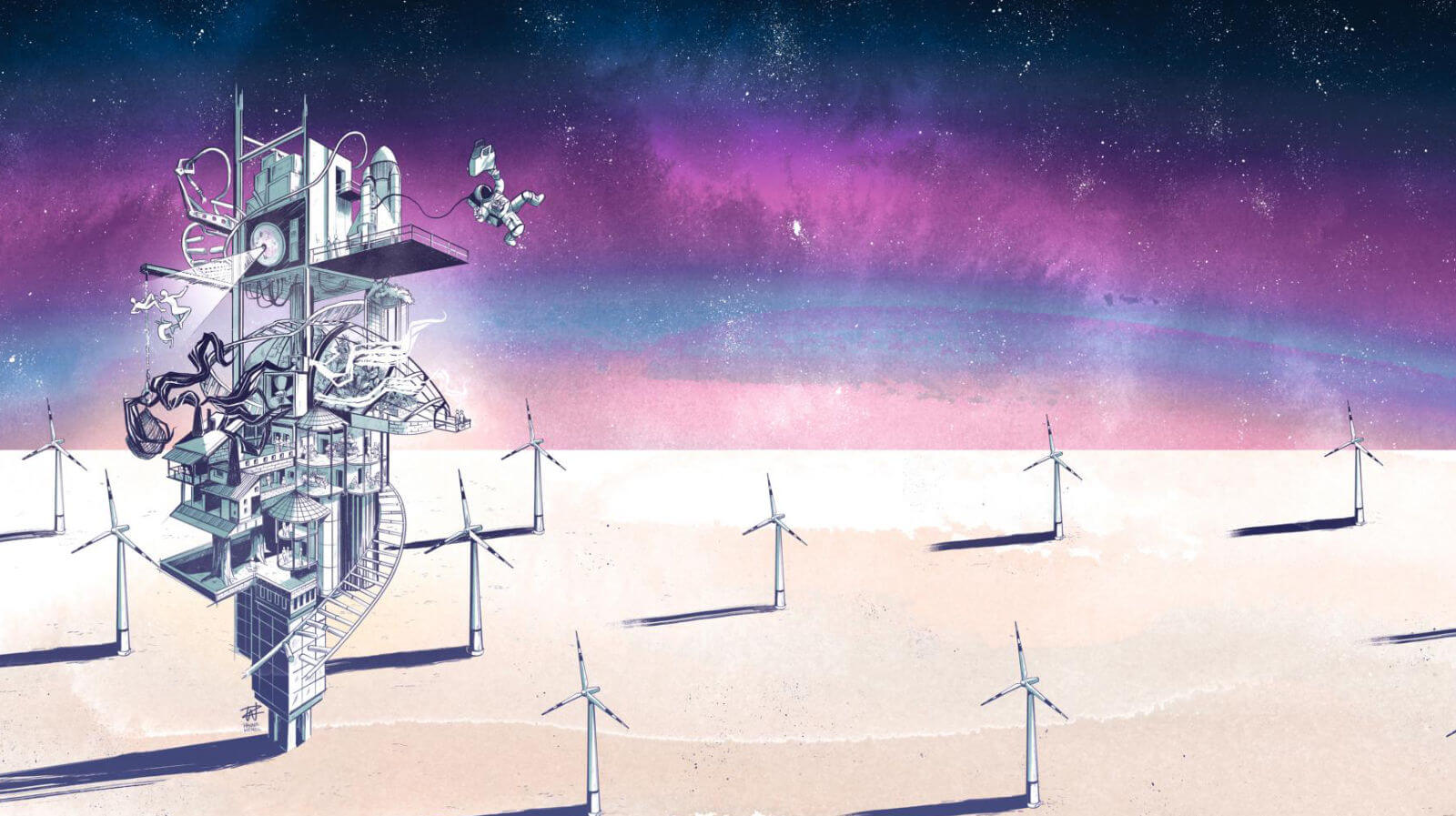Sustainable architecture on Mars
Since the 19th century scientists have been studying life on Mars. How humans could actually survive in space, is part of a research programm run by „SONet“ (Sustainable Offworld Network) – a team of experts, including Dr. Gisela Detrell from the Institute of Space Systems Stuttgart. She conceptualized a life support system for the Martian city „Nüwa“, which could inhabitate and provide for one million human citizens. According to her study, Nüwa will not only be sustainable, but will be able to expand and grow by itself – without relying on the support of mother earth.
Together with science fiction author Dr. Karlheinz Steinmüller, Dr. Gisela Detrell will be discussing the possibilities of inhabiting Mars and what kind of knowledge can be derived from and implimented for our life on earth.
Post fossil cities
As covid reaches yet another pinnacle, it is hard to focus on an even worse impending fiasco: Climate change. A disaster, which we entirely have brought upon ourselves. However – in comparison to SARS-CoV-2 – the climate crisis is causing a far grimmer conglomeration of challenges. The global epicentres enforcing such major environmental destruction: Our large and continually growing (mega)cities.
Urbanist Prof. Dr. Astrid Ley and Dutch writer Wytske Versteeg will examen specific challenges and struggles, while focussing on solution-orientated ideas directed towards the improvement of urban living and existence.
Is mankind the most miserable of all machines?
“Storytelling is the jewel adorning the head and crown of creation. And maybe humankind’s most genuine feature”, says Martina Clavadetscher in an interview focusing on her book “Die Erfindung des Ungehorsams” (The invention of disobedience). Refined language tools combined with artificial intelligence is threatening to rob us of our unique human skill: the art of writing. Or maybe not? What is the essence of being human? That is the main question and focus of Clavadetscher’s novel – questioning and provoking social as well as philosophical discussions and self-reflexion. She emphasizes, that mankind and machines share far too many characteristics: behaviour, reactions, stimuli, sensory skills, obedience, programming and imprinting via education, parenting or society. What makes us human? Why do we and what makes us act remote-controlled? Is mankind truly the most miserable of all machines? “Current state of the art software – which has been programmed to be driven and function on optimum level – would disbelievingly shake its head and laugh at us, …if that weren’t such a waste of time for them”, so Clavadetscher. However, according to her, we should honour and celebrate exactly those aspects, that sets us apart from computers, robots and other machines: the irrational, the sadness, the procrastination, the boredom, the capability to love and to tell stories.
Journalist Eva Wolfangel and novelist Martina Clavadetscher will tackle the primal question: What differentiates men from machines? Concentrating on aspects such as the interaction between artificial and human language, consciousness and intelligence. Will machines be able to take over further cognitive and emotional aspects? Where do we draw the lines – where are they blurry? Is there anything exceptional to humankind and exactly what are we looking for in artificial intelligence – should there even be any?
Quantum computing
When it comes to new technologies, there is one triggering a widespread spectrum of reactions: Quantum computing. Excitement, confusion, fear and a thorough sense of wonder. Just to name a few. The later normally associated with science fiction. The cause behind this phenomenon goes far deeper than the machinery’s hard to comprehend and immensely complex structure. It’s the impact, that the mega reliably functioning quantum computer would have on society. Cryptography, artificial intelligence, material and molecular modelling – just to name a few. Everything humankind has tenaciously achieved in these divisions over decades, would suddenly appear frugal if not pathetic. Could it be, that we are just talking and falling for an unrealistic utopian hype? Will quantum computing remain a future technology, mainly taking place twenty years ahead of our time?
Tilman Pfau and Eva Wolfangel will address quantum computing’s questions of feasibility, the current state of the art as well as potential opportunities and risks.

